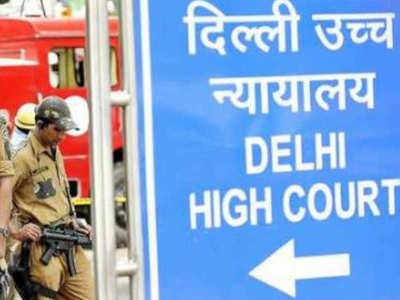Top Searches
- News
- City News
- delhi News
- Right to be forgotten: Delhi HC orders removal of link to its own ruling
Right to be forgotten: Delhi HC orders removal of link to its own ruling

Representative image
NEW DELHI: In an important order on the ‘Right to be forgotten’ and ‘Right to be left alone’, Delhi High Court has ordered removal of one of its own verdicts from search engine Google.
The judgment was related to acquittal given in a drug case involving a US citizen of Indian origin.
Justice Prathiba M Singh highlighted that the ‘Right to privacy’ includes ‘Right to be forgotten’ and ‘Right to be left alone’ while asking a website — Indian Kanoon — to remove the high court verdict link given in an Narcotics Drugs and Psychotropic Substances Act case so that the same can’t be accessed by Google and Yahoo search engines.
“Owing to the irreparable prejudice, which may be caused to him in his social life and career prospects, inspite of the petitioner having ultimately been acquitted in the said case via the said judgment, prima facie this court is of the opinion that the petitioner is entitled to some interim protection, while the legal issues are pending adjudication by this court,” the court noted in an interim order.
Since the court has protected the privacy of the petitioner, TOI is not naming him. In his plea the man told the court that he is of Indian origin but an American citizen by birth who was slapped with a case under the NDPS Act when he visited India in 2009.
While the trial court acquitted him in 2011, the high court upheld his innocence two years later. He told the high court that on his return to the US he decided to pursue law at an university, but realised he faces a huge disadvantage due to the fact that the judgment rendered by Delhi high court is available on a Google search to any potential employer, who wanted to conduct his background verification before employing him.
Despite enjoying a good academic record, he is unable to get any employment to his expectations due to the availability of this judgment online. In between the petitioner sent a legal notice to Google, Indian Kanoon and another website vLex (which removed the judgment link).
When the other websites didn’t remove, he moved the high court invoking ‘Right to privacy’.
The judgment was related to acquittal given in a drug case involving a US citizen of Indian origin.
Justice Prathiba M Singh highlighted that the ‘Right to privacy’ includes ‘Right to be forgotten’ and ‘Right to be left alone’ while asking a website — Indian Kanoon — to remove the high court verdict link given in an Narcotics Drugs and Psychotropic Substances Act case so that the same can’t be accessed by Google and Yahoo search engines.
“Owing to the irreparable prejudice, which may be caused to him in his social life and career prospects, inspite of the petitioner having ultimately been acquitted in the said case via the said judgment, prima facie this court is of the opinion that the petitioner is entitled to some interim protection, while the legal issues are pending adjudication by this court,” the court noted in an interim order.
Since the court has protected the privacy of the petitioner, TOI is not naming him. In his plea the man told the court that he is of Indian origin but an American citizen by birth who was slapped with a case under the NDPS Act when he visited India in 2009.
While the trial court acquitted him in 2011, the high court upheld his innocence two years later. He told the high court that on his return to the US he decided to pursue law at an university, but realised he faces a huge disadvantage due to the fact that the judgment rendered by Delhi high court is available on a Google search to any potential employer, who wanted to conduct his background verification before employing him.
Despite enjoying a good academic record, he is unable to get any employment to his expectations due to the availability of this judgment online. In between the petitioner sent a legal notice to Google, Indian Kanoon and another website vLex (which removed the judgment link).
When the other websites didn’t remove, he moved the high court invoking ‘Right to privacy’.
FacebookTwitterLinkedinEMail
Start a Conversation
end of article
